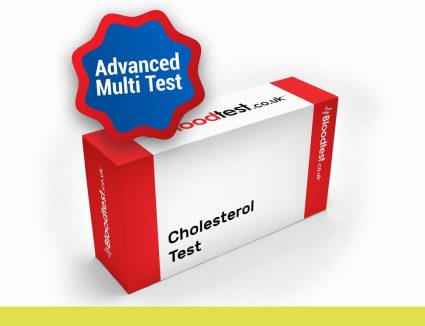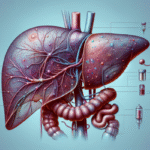In-Depth Understanding of Cholesterol Levels and Their Vital Importance
Exploring Cholesterol: Its Definition and Health Significance

Cholesterol Blood Test in Wishaw: Cholesterol is a waxy, fat-like substance that is essential for the formation of cell membranes and the synthesis of hormones. While your body requires a certain amount of cholesterol to function optimally, having excessive cholesterol in your bloodstream can lead to serious health issues, particularly heart disease. It is vital to understand the different types of cholesterol within your body, as this knowledge can greatly assist you in maintaining a healthy lifestyle and making informed health choices.
Elevated cholesterol levels, especially LDL (low-density lipoprotein), can lead to plaque build-up in your arteries. This accumulation narrows the arteries and significantly increases the risk of experiencing heart attacks and strokes. Consequently, it is important to have regular check-ups, including a cholesterol blood test in Wishaw, which plays a crucial role in the early detection and management of potential health concerns.
Prefer Listening Instead of Reading?
 Understanding the Different Types of Cholesterol
Understanding the Different Types of Cholesterol
Cholesterol is not a singular substance; it can be divided into two main categories: LDL and HDL (high-density lipoprotein). Often referred to as ‘bad' cholesterol, LDL contributes to the formation of plaque within arteries, which poses a risk to cardiovascular health. Conversely, HDL is known as ‘good' cholesterol as it facilitates the removal of cholesterol from the bloodstream, thus promoting overall vascular health.
To enhance heart health, achieving a suitable balance between these two types is essential. A cholesterol blood test in Wishaw can provide valuable insights into your cholesterol levels, enabling you to make well-informed decisions regarding your dietary habits and physical activity levels for optimal health outcomes.
Understanding Normal Cholesterol Levels for Maintaining Optimal Health
Recognising what constitutes normal cholesterol levels is paramount for sustaining heart health. Generally, a total cholesterol level below 200 milligrams per deciliter (mg/dL) is deemed desirable. For LDL cholesterol, levels should ideally be below 3.0 mmol/L, while HDL levels should be at least 1.0 mmol/L for men and 1.2 mmol/L or higher for women. Furthermore, triglycerides, another type of fat circulating in your blood, should remain below 1.7 mmol/L.
Regular testing through a cholesterol blood test in Wishaw is crucial for monitoring these levels, ensuring that any fluctuations are identified promptly. This vigilance facilitates timely interventions, preserving your heart health and overall well-being.
Identifying Key Factors Influencing Cholesterol Levels

Multiple factors can significantly influence your cholesterol levels, including dietary choices, levels of physical activity, genetic predispositions, and overall lifestyle habits. A diet excessively high in saturated and trans fats can elevate LDL levels, while a diet abundant in fibre, fresh fruits, and vegetables can effectively lower these levels.
Incorporating regular exercise into your daily routine can also greatly affect your cholesterol levels. Engaging in cardiovascular activities can enhance HDL cholesterol levels, providing a protective effect against heart disease. Genetics play a pivotal role in how your body processes cholesterol; some individuals may naturally maintain higher levels despite their lifestyle choices. This is where a cholesterol blood test in Wishaw becomes invaluable, as it enables the development of personalised health strategies tailored to individual risk factors.
Implementing Effective Strategies to Manage High Cholesterol
If you find that your cholesterol levels are elevated, there are several strategies to manage this condition effectively. Dietary adjustments are often the initial step in combating high cholesterol levels. Reducing the intake of saturated fats typically found in red meats and full-fat dairy products, while increasing the consumption of heart-healthy fats from sources like avocados, olive oil, and oily fish, can lead to significant improvements in your cholesterol profile.
In addition to dietary changes, consistent physical activity is essential. UK health guidelines recommend engaging in at least 150 minutes of moderate aerobic exercise each week. For some individuals, medication may also be necessary, particularly when lifestyle changes alone do not sufficiently lower cholesterol levels. Regular monitoring through a cholesterol blood test in Wishaw will keep you informed about your levels and allow for necessary adjustments to your management plan as required.
The Vital Importance of Regular Cholesterol Testing
Understanding the Significance of Routine Testing for Your Heart Health

Regular cholesterol testing is crucial for monitoring heart health and serves as a preventative measure against cardiovascular diseases. By tracking your cholesterol levels consistently, you can identify any irregularities early, enabling proactive lifestyle changes or necessary medical interventions to improve your health outcomes.
In the UK, cardiovascular diseases are among the leading causes of mortality, highlighting the importance of regular health checks. A cholesterol blood test in Wishaw is a straightforward yet effective means of evaluating your risk, potentially saving your life by facilitating early detection of underlying issues.
Recognising Individuals Who Should Prioritise Cholesterol Testing
Certain individuals should place a high priority on regular cholesterol testing. Adults over the age of 40, particularly those with a family history of heart disease, are strongly advised to have their cholesterol levels evaluated periodically. Moreover, individuals with conditions such as high blood pressure or diabetes should also consider regular tests, as these factors can significantly heighten the risk of developing heart disease.
Being proactive about your heart health empowers you to implement lifestyle changes before conditions escalate into serious health issues. A cholesterol blood test in Wishaw is a fundamental element of this preventative health strategy, enabling you to take charge of your cardiovascular well-being.
Determining How Often You Should Have Cholesterol Testing
The frequency of cholesterol testing may vary considerably based on age, existing health conditions, and prior test results. Generally, adults should have their cholesterol levels checked every five years; however, individuals with risk factors may require more frequent testing.
For instance, if you have a family history of heart disease or have previously been flagged for elevated cholesterol levels, your healthcare provider may recommend annual or biennial testing. Understanding the appropriate timing for these tests is crucial, and local healthcare services can guide you in scheduling a cholesterol blood test in Wishaw that suits your needs.
Preparing Effectively for Your Cholesterol Test
Understanding the Fasting Requirements for Accurate Testing
Preparing for a cholesterol blood test often necessitates fasting, which typically involves abstaining from food and drink, except for water, for a period of 9 to 12 hours prior to the test. This fasting duration is particularly important for lipid panels that assess various types of cholesterol and triglycerides, as it ensures the most reliable results.
While fasting may seem inconvenient, the benefits of obtaining accurate test results far outweigh any temporary discomfort. Being aware of what to expect can alleviate any anxiety associated with the testing process, ensuring that you arrive fully prepared for your cholesterol blood test in Wishaw.
What to Expect During the Cholesterol Testing Process
During a cholesterol blood test, a healthcare professional will collect a small blood sample, typically drawn from a vein in your arm. The procedure is relatively quick and uncomplicated, often taking less than five minutes. You may feel a slight prick when the needle enters, but the discomfort is minimal and temporary.
After your sample is collected, it will be sent to a laboratory for analysis. Familiarising yourself with the testing process can help alleviate concerns and make you feel more comfortable during your cholesterol blood test in Wishaw.
Guidance on Post-Test Procedures
Following your cholesterol blood test, you can generally resume your normal activities without any restrictions. Results are typically available within a few days, and your healthcare provider will schedule a time to review them with you. It is vital to adhere to any specific post-test instructions provided by your healthcare professional, particularly if fasting was required prior to the test.
Being aware of when and how to follow up on your results will help you remain proactive about your heart health. A cholesterol blood test in Wishaw not only evaluates your current cholesterol levels but also initiates ongoing health discussions and strategies for improvement.
Finding Cholesterol Testing Services in Wishaw
Utilising Local GP Services for Convenient Testing
In Wishaw, numerous local GP practices offer cholesterol testing as part of their routine health assessments. These services are frequently provided free of charge under the NHS, making it a convenient option for monitoring your cholesterol levels without the need to explore private healthcare options.
It is advisable to schedule an appointment with your general practitioner (GP) if you are due for a cholesterol check. The accessibility and familiarity of local healthcare providers make them an excellent starting point for anyone seeking a cholesterol blood test in Wishaw.
Exploring Private Clinic Alternatives
For those who prefer a more expedited or confidential option, several private clinics in Wishaw offer cholesterol testing services. These clinics often provide rapid results, frequently within the same day, facilitating immediate follow-up and peace of mind regarding your health status.
While there may be a fee associated with these tests, the convenience and speed can be worthwhile for many individuals. Researching local private clinics can assist you in finding the most suitable option for a cholesterol blood test in Wishaw that meets your specific needs.
Taking Advantage of Mobile Health Services for Testing
Another convenient alternative in Wishaw is the availability of mobile health services, which periodically visit the area to offer cholesterol testing. These units can be an excellent option for individuals facing mobility challenges or those with demanding schedules, providing a flexible solution for health monitoring.
Stay informed about announcements related to mobile health services in your community, as they can provide a convenient and accessible means to obtain a cholesterol blood test in Wishaw without needing to travel to a clinic or GP office.
Understanding Your Cholesterol Test Results
Interpreting Your Cholesterol Test Report
Once you receive your cholesterol test results, comprehending the figures presented is crucial for evaluating your health status. Your report typically details your total cholesterol level, LDL, HDL, and triglyceride levels. Familiarising yourself with these terms can significantly enhance your understanding of your cardiovascular health.
A total cholesterol level below 5.0 mmol/L is considered favourable, whereas LDL should ideally be under 3.0 mmol/L. HDL levels exceeding 1.0 mmol/L for men and 1.2 mmol/L for women are beneficial, and triglyceride levels should remain below 1.7 mmol/L.
When interpreting your results, it is advisable to consult with your healthcare provider to understand the implications of these numbers concerning your health. A cholesterol blood test in Wishaw lays the groundwork for ongoing health discussions and the formulation of tailored health strategies.
The Health Implications of Elevated Cholesterol Levels
High cholesterol levels are a significant risk factor for heart disease and stroke. Elevated LDL levels can result in the formation of plaque in your arteries, narrowing them and increasing the likelihood of cardiovascular events.
If your results indicate high cholesterol, it may be time to reassess your lifestyle choices, including dietary habits, levels of physical activity, and stress management methods. Regular testing through a cholesterol blood test in Wishaw will help you monitor your progress as you implement these changes.
When to Consult a Medical Professional
If your cholesterol levels fall outside the normal range, it is imperative to consult your GP for further advice. They can guide you on the next steps, which may involve lifestyle modifications, medications, or further assessments to evaluate your overall heart health.
Regular consultations with your healthcare provider are essential, particularly if you have a family history of heart disease or other risk factors. A cholesterol blood test in Wishaw can serve as an initial step towards enhancing your heart health, but continuous medical support is equally vital for sustained well-being.
Monitoring Your Cholesterol Progress Over Time
Tracking your cholesterol levels over time is essential for effectively managing your heart health. Regular check-ups and follow-up tests can help assess the success of any lifestyle or treatment changes you have implemented.
By consistently monitoring your cholesterol through a cholesterol blood test in Wishaw, you empower yourself to take charge of your heart health, making necessary adjustments to your approach to maintain a healthy cholesterol range.
Strategies for Effectively Managing High Cholesterol Levels
Optimising Your Dietary Choices and Nutrition
A well-rounded diet is critical for effectively managing high cholesterol levels. Striving for a diet low in saturated fats and rich in dietary fibres can significantly aid in lowering LDL cholesterol levels. Including foods high in omega-3 fatty acids, such as salmon, walnuts, and flaxseeds, can also be beneficial in maintaining optimal cholesterol levels.
Integrating an abundance of fruits, vegetables, and whole grains into your daily meals can provide essential nutrients while simultaneously helping to lower cholesterol. Foods rich in soluble fibre, such as oats and beans, can specifically aid in reducing LDL cholesterol levels. Regularly opting for heart-healthy food choices is vital, and a cholesterol blood test in Wishaw can help assess the effectiveness of your dietary changes.
Incorporating Regular Exercise and a Healthy Lifestyle
Engaging in regular physical activity is fundamental for effectively managing cholesterol levels. Participating in moderate aerobic exercises, such as brisk walking, cycling, or swimming, can help elevate your HDL cholesterol levels—the ‘good' cholesterol that aids in clearing LDL from your bloodstream.
Maintaining a healthy weight through a balanced combination of proper diet and physical activity also positively contributes to optimal cholesterol levels. Aim for at least 150 minutes of moderate exercise or 75 minutes of vigorous activity each week. Monitoring your cholesterol levels through a cholesterol blood test in Wishaw will enable you to observe improvements as you commit to a more active lifestyle.
Utilising Medications and Treatments When Necessary
In certain circumstances, lifestyle modifications alone may not suffice to manage high cholesterol levels. This is when medications, such as statins, may become necessary. Statins work by inhibiting a substance that your body needs to produce cholesterol, thus lowering your LDL levels and reducing the risk of heart disease.
Your doctor will assess whether medication is warranted based on your cholesterol levels, existing risk factors, and overall health condition. Regular follow-up appointments and tests, including a cholesterol blood test in Wishaw, will facilitate tracking your response to treatment and ensuring appropriate adjustments are made when necessary.
Accessing Local Support and Resources for Cholesterol Management
Engaging with Community Health Programmes for Support
Wishaw offers a variety of community health programmes aimed at enhancing heart health and managing cholesterol levels effectively. These initiatives often feature complimentary workshops, screenings, and consultations that can provide invaluable education on maintaining healthy cholesterol levels.
Participating in community health programmes can foster a supportive environment, encouraging individuals to pursue lifestyle changes collectively. Engaging with these local resources can empower you to take control of your health and monitor your cholesterol through a cholesterol blood test in Wishaw.
Participating in Educational Workshops for Enhanced Knowledge
Local health centres in Wishaw frequently organise educational workshops centred on heart health, nutrition, and cholesterol management. These workshops can furnish essential information on how to maintain or improve your cholesterol levels through dietary, exercise, and lifestyle adjustments.
Attending these sessions can demystify the topic of cholesterol and equip you with practical strategies for healthier living. The insights gained can significantly enhance your ability to manage your cholesterol effectively, guiding you towards a healthier heart.
Frequently Asked Questions Regarding Cholesterol Testing
What does a cholesterol blood test entail?
A cholesterol blood test measures the levels of various types of cholesterol in your blood, including total cholesterol, LDL, HDL, and triglycerides, to help evaluate your heart health status.
How often should I undergo a cholesterol blood test?
Most adults should have their cholesterol levels checked approximately every five years; however, those with risk factors may require more frequent testing, depending on their specific circumstances.
What do the different cholesterol levels signify?
Cholesterol levels are categorised as follows: a total cholesterol level below 5.0 mmol/L is desirable, LDL below 3.0 mmol/L is optimal, and HDL should exceed 1.0 mmol/L for men and 1.2 mmol/L for women to ensure optimal heart health.
Is fasting necessary before a cholesterol test?
Most cholesterol tests require an overnight fast of 9 to 12 hours to ensure accurate results. Always consult your healthcare provider for personalised guidance on fasting requirements prior to your test.
What are the implications of high cholesterol levels?
Elevated cholesterol levels may necessitate lifestyle adjustments, including dietary changes and increased physical activity, or potentially medication as advised by your healthcare provider.
Where can I access a cholesterol blood test in Wishaw?
You can obtain a cholesterol blood test at local GP surgeries, private clinics, or through mobile health services that operate in the area, providing various options to suit your needs.
Can dietary choices impact my cholesterol levels?
Yes, a diet high in saturated fats can elevate LDL cholesterol levels, while a diet rich in fibre and healthy fats can effectively lower them.
Is exercise beneficial for managing cholesterol?
Absolutely! Regular aerobic exercise can increase HDL (good) cholesterol and help reduce LDL (bad) cholesterol, enhancing overall heart health and well-being.
What steps should I take after receiving my test results?
After receiving your results, it is crucial to consult with your healthcare provider to discuss the implications of your cholesterol levels and the necessary steps to take moving forward.
Are there community resources available for cholesterol management in Wishaw?
Yes, Wishaw offers a variety of community health programmes and educational workshops focused on cholesterol management and heart health improvement, providing accessible resources for residents.



Ah, cholesterol—the unsung hero and villain of our bloodstream! It’s like that one friend who’s always at the party: sometimes they bring the fun (hello, hormone synthesis!), but if they’re not careful, it can get pretty rowdy and lead to an awkward trip to the ER.
I appreciate this insightful exploration of cholesterol and its crucial role in our health. It’s fascinating how something the body needs can also become a double-edged sword. Personally, I started monitoring my cholesterol levels regularly after a family member faced heart-related issues. It really highlights the importance of proactive health management.
It’s great to hear that you’re taking those proactive steps. Monitoring cholesterol levels regularly can really empower you to manage your health effectively. The balance between needing cholesterol for essential functions—like hormone production and cell membrane stability—and the risk it poses when levels get too high is a delicate dance.
“I’m glad to hear you’re taking such proactive steps! If you’re interested in learning more about how to effectively manage cholesterol levels and overall heart health, check out this resource for valuable tips and information.”
https://ezbloodtest.com/SmoothieRecipes
Ah, cholesterol—the fat of the land, the waxy connoisseur of our bloodstream! I never knew we were hosting such a high-stakes dinner party in our veins, and suddenly I’m the reluctant bouncer trying to keep those rowdy LDLs from crashing the party. It’s fascinating, though, how LDL and HDL (the high-density lipoproteins) are essentially frenemies, isn’t it? One’s the “bad” guy lurking in the shadows, while the other is the chivalrous hero swooping in to save our arteries. If only they came with capes, I’d feel a whole lot better about their antics!
Isn’t it wild to think of our bloodstream as a dinner party? It’s such an apt metaphor for the role of cholesterol. LDL and HDL really do have a fascinating relationship, like the quirky friends who don’t always see eye to eye but somehow balance each other out.
“Speaking of managing those unruly LDLs and celebrating our HDL heroes, why not dive deeper into the cholesterol conundrum? Check this out for some insightful tips on keeping your bloodstream’s dinner party as smooth as possible!”
https://ezbloodtest.com/VideoLeap